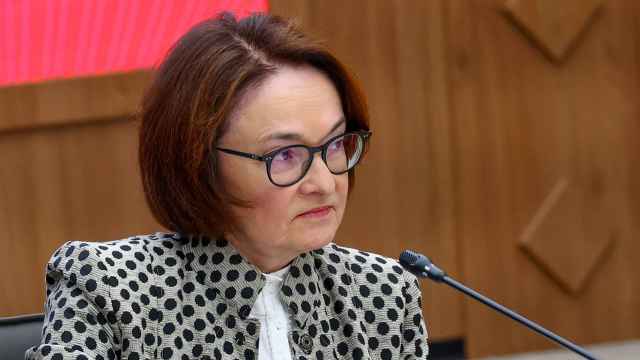HATTIESBURG, Mississippi — Bob Dudley is not one to wear his disappointment on his sleeve. Even as a kid, "Bobby," as he was then known, "was completely unflappable," remembers Charles Brent, Dudley's hometown friend in southern Mississippi in the 1960s.
If he tried out for a sports team and got cut, he kept his emotions in check. "Nothing got him upset," said Brent, now a neurosurgeon. "He was often on the bad end of an injustice — where someone was selected instead of him. I never saw him get angry or raise his voice. Or disappointed."
Nearly four decades later Bob, no longer Bobby, displayed a similar lack of chagrin when Tony Hayward was selected to become chief executive of oil behemoth BP in 2007, even though many deemed Dudley well-qualified to replace outgoing boss John Browne.
"When Tony was appointed CEO, he was humble, still happy to serve the company as he could," said Dr. Angel Cabrera, president of the Thunderbird School of Global Management, a friend of Dudley's. "There was no acrimony between them."
"He's not the stereotypical aggressive, know-it-all CEO type of guy," Cabrera added. "He's a humble man."
Battered by months of blunders and mishaps that began with the April 20 explosion aboard its Macondo well in the Gulf of Mexico that killed 11 workers and caused the United States' worst offshore oil spill, BP said last week that Dudley would replace the much-ridiculed Hayward in October.
Supremely calm under pressure. Approachable. Down to earth. Well-liked, even by those who should by right be his enemies. He is also no stranger to hostile environments, having butted heads with an angry Russian government while running the TNK-BP joint venture in that country.
And, crucially, he's American — one who often swam in the Gulf as a child, Brent said. His parents kept a boat in Biloxi, Mississippi.
BP is one of Britain's largest firms, but has 40 percent of its assets, 25 percent of its oil production and 40 percent of its shareholders in the United States.
Of course, the company insists that nationality was not an issue in Dudley's selection. "Bob was not appointed because he is American. He was appointed because he was the best candidate," a spokesman said.
But oil analysts like Fadel Gheit of Oppenheimer & Co. say that just as being an American handicapped Dudley three years ago, it has now played in his favor with a company eager to repair its badly tar-balled reputation in the United States. "Now, being an American, he's the clear choice," Gheit said.
So far, residents of the Gulf seem to have warmed to Dudley — who was brought in to run cleanup operations in mid-June after a number of image-damaging gaffes by Hayward, a Brit.
"Hayward was inept at public relations and speaking to people in southern Louisiana," said Richard Angelico, 66, of Orleans Parish, Louisiana. "I have not met Dudley, but when I see Dudley speak, he seems to be a decent man. I think people would be more comfortable with someone running BP that is from the Deep South."
But local boy or not — Dudley was actually born in New York in 1956 — BP's CEO-in-waiting has a long list of challenges ahead: The oil major must permanently seal the Macondo well, continue to clean up the Gulf, deal with an unfriendly Congress and the administration of President Barack Obama, plus fight off more than 300 oil spill-related lawsuits.
"Dudley's honeymoon period will be over very quickly," said Andrew Neff, a senior energy analyst at IHS Energy. "If BP doesn't kill that well officially within the next two weeks, people are going to get very, very annoyed."
Dudley told National Public Radio last week that the well "might be killed" as early as Monday or Tuesday.
"There's no precision. There's nothing guaranteed. I'm hopeful, and I do believe we've seen the end of oil flowing into the Gulf," he said.
Others say what Dudley, BP's senior management and board of directors must do is overhaul the firm's business on many levels to convince an angry public — not to mention policymakers and shareholders — that the company is finally serious about avoiding future disasters of this kind.
"What BP must show now is leadership, not management," said Richard Torrenzano, CEO of the strategic communications firm Torrenzano Group. "Bob Dudley needs to go down to the Gulf as CEO and spell out very clearly what he intends to do differently."
Wild Man of the Woods
Hattiesburg today is the main city in southern Mississippi, and is nicknamed "Hub City" because it sits on a main road and rail intersection.
A city of some 50,000 with the sleepy air of many southern towns, Hattiesburg boasts a main street that combines expansive plantation architecture and more modern buildings. Residents say the railroad tracks running through the town mark a significant social dividing line.
Bedford Woods, the neighborhood where Dudley spent his formative years, is a series of quiet streets with one- or two-story houses surrounded by green gardens. The area was a middle class and white bastion.
Brent said their fathers both taught science at the nearby University of Southern Mississippi. They both swam backstroke on a local team and belonged to the boy scouts. Their parents were also friends.
Dudley's father was a military veteran and, Brent said, the son inherited his sense of self-discipline from him.
After school, the pair chased snakes in the woods but, unlike many southern families, their parents did not teach them how to hunt.
Some others recall there was little remarkable about Dudley. "He was not a very memorable fellow," said Robert Tatum, who swam on the same swim team as Dudley and is now CEO of the Tatum Development Corp, based in the city.
But Brent describes a boy with a well-developed sense of humor. At a scout camp in a forest south of Hattiesburg, Brent said the two made Dudley a costume to look like a mythical, child-snatching "Wild Man of the Woods."
One night, as Brent recounted the Wild Man legend to younger scouts around a campfire, Dudley suddenly emerged in costume from the woods and tried to snatch one of the scouts. For nights afterward the other scouts were terrified, Brent said.
"He was always good for a practical joke, but there was never anything malicious about it," he recalled. "He would never pick on someone. He was the moral compass for our group."
Brent said they kept in touch when Dudley moved away to Illinois where he attended high school, but they lost contact when Dudley joined oil firm Amoco as a junior executive.
Joel Johnson, now a general civil practice attorney in Hattiesburg, was also on the swim team — the Hub Fins — and described Dudley as a "natural-built swimmer," tall for his age, with a very slender build.
Johnson remembers Dudley being academically gifted but humble. "He was a chess player in a checkers-playing town," Johnson said. "He didn't lord it over anyone, but he was certainly very smart. If he's half as good a person now as he was when he was a kid growing up, we are all going to be in good shape."
Dudley grew up during the civil rights era, a time of social turmoil in Mississippi and across the South. The white supremacist Ku Klux Klan murdered three civil right workers in Mississippi's Neshoba County in 1964, an attack that shocked the country.
And in 1966, the Klan firebombed the home of civil rights leader, Vernon Dahmer, just north of Hattiesburg. Dahmer returned fire to hold off the attackers while his family escaped, but he died in the blaze.
The killing sent shockwaves through the city, said Bo Morgan, a young person in Hattiesburg at the time. "The civil rights movement and the race issue changed everything," said Morgan, now a history professor at the University of Southern Mississippi. "Most people in the [black and white] community were noncombatants, going about their business gawking at what was going on, but not active."
Brent said he and Dudley were only dimly aware of events swirling around them. But they were at Thames Middle School at the very start of its desegregation, said Carroll Russell, the principal of the school's elementary section at that time.
"We didn't have any violence. We had a period of adjustment," Russell said.
Brent said Dudley was insulated from the conservatism of the era because he was not a native southerner and his parents were part of an academic enclave at the university that was more progressive in terms of politics, race and religion.
From Russia With Threats
Dudley joined Amoco in 1979 and, prior to its takeover by BP in 1998, his work took him to Asia and to Moscow in the mid-1990s.
As a BP executive, Dudley returned to Russia in 2003 where he served as CEO of TNK-BP until 2008.
IHS Energy's Neff said the billions of dollars in investments that Dudley oversaw to upgrade outdated refineries and boost production while at the helm of TNK-BP were part of a long-term strategy that is still paying off.
"To Dudley's credit, he revamped and restructured TNK-BP," he said. "The full effect of that strategy has yet to be felt. Some day, someone else will take the credit for that success, but the groundwork was laid by Dudley."
It was also while in Russia, however, that Dudley was caught up in a nasty battle with shareholders that would eventually threaten his personal safety.
The dispute erupted in summer 2008 when four Russia-connected billionaire co-owners in TNK-BP — Mikhail Fridman, Viktor Vekselberg, German Khan and Len Blavatnik — accused BP of seizing operational control at TNK-BP and said they wanted to fire Dudley because he was siding with BP instead of defending the interests of all shareholders.
The Russians said they were particularly unhappy about BP slowing down TNK-BP's expansion abroad and accused Dudley of preferential treatment of BP's secondees at TNK-BP.
BP and Dudley in turn accused the Russians of using political connections and administrative pressure to deprive foreign employees, including Dudley, of their Russian visas and oust them from the country.
Though the exchange was unpleasant, Fridman appeared to harbor no ill will toward Dudley. "If you ask me about him as a person, he is just a great guy," Fridman told Reuters during the conflict.
Fridman was much less complementary about BP's headquarters and the new CEO, Hayward. "There is a good English word — arrogance. … We have sensed this kind of condescension for a long time," he said at the time.
Dudley was forced to flee Russia in 2008, and the Russian co-owners and BP ultimately clinched an amicable deal a few months later. The agreement was seen by most analysts as a major victory for the Russians because BP surrendered operational and management control of the venture.
"The fact that Dudley was an American and relations between the U.S. and Russia weren't that great [in 2008] contributed, I think, to his being forced to leave the country," Neff said.
For a few months after he left Russia, sources within BP said Dudley was forced to stay on the move for his own personal safety.
Dudley's wife, Mary, set up a charity fund to help disabled Russian orphans in 1998, called Diema's Dream (Diemasdream.com). She has continued with her charity work despite her husband's flight from the country.
Last week, Deputy Prime Minister Igor Sechin welcomed Dudley's appointment as BP's CEO, saying he valued him as a top professional with vast experience in Russia.
"We have developed good and warm relations during his time in Russia. He knows the Russian market well," Sechin said through a spokesman.
In June, Sechin shocked BP hours before a meeting with Hayward by telling reporters that he knew the CEO would resign and was keen to hear the name of his successor.
"Spine of Steel"
Interviews with colleagues in Russia and elsewhere show that Dudley is held in high regard within the company.
"He was an extremely fair and friendly person who didn't have favorites or made someone feel like a pariah," said one former colleague, who spoke on condition of anonymity.
"In 2007, when rumors emerged that he was competing with Hayward for the CEO job at BP, people really freaked out. No one wanted him to leave," said another.
A former colleague in London said Dudley "has a spine of steel," adding: "People have no idea the pressure he was under in Russia. It was extraordinarily difficult."
With his thinning, gray-blond hair and calm manner, Dudley seems a little older than his 54 years. On a conference call with reporters after his appointment to the post of CEO last week, his demeanor was described as personable and unrushed.
But Gheit of Oppenheimer & Co. said it would be a mistake to confuse good manners with weakness. "He has a mild manner and nice smile, but he's a tough guy," he said. "He's not a pushover. He stood up to the Kremlin and the Russian government, head to head. Finally they had to take his visa away."
By the time Dudley was brought in to take charge of BP's Gulf of Mexico cleanup operations, Hayward's handling of the crisis had come under sustained, withering fire.
It was not just that the company had consistently underestimated the flow of oil in the sea — up to 60,000 barrels per day until the well was capped on July 15. But it also kept raising its estimate.
On May 14, Dudley, at that point BP's director for the Americas, contributed to that process when he told MSNBC television that a figure of 5,000 barrels per day was "a good estimate" and that calculations of up to 70,000 bpd were "scaremongering."
It became clear with time that Hayward and the company's handling of the spill, combined with the fact that BP was officially a foreign company — regardless of who actually owned the stock — had left the oil giant in a public relations quagmire that only got worse.
"There was some ill-advised xenophobia and a lack of understanding here about what BP was trying to do," Neff said. "But there was a series of mistakes made by BP along the way."
Strategic communications expert Torrenzano described the management of BP as having lurched from one fiasco to another. "Talk about a gang that couldn't shoot straight," he said.
Hayward helped compound the damage to BP's reputation with a remark saying he wanted his "life back," which was received poorly by relatives of those who died in the April 20 explosion and those in the fishing and tourism industries on the Gulf whose livelihoods had been destroyed.
"It kind of infuriated me when he said he wanted to get his life back to normal," said Clifford Montecino, 66, a resident of Marrero, Louisiana. "What about our lives? We're not getting them back."
Hayward further exacerbated the problem when he was seen taking time off from leading efforts to seal the well to go sailing.
As the public mood soured, U.S. politicians began referring to the company as British Petroleum, a name BP ceased using a decade ago. BP came under increasing pressure to make a change in its executive suite. John Hofmeister, former president of Royal Dutch Shell's U.S. operations and author of "Why We Hate the Oil Companies," said Hayward's ouster was inevitable, given the seriousness of the spill.
"The fact that he was in the chair at the time, it was his company, on his watch, that committed this great offense and tragedy — that just wears very thin on a company's credibility," he said.
"There has to be a response, and the response is generally a new person to take it from there," he added.
In a conference call on July 27, Hayward told reporters that it was "not possible for the company to move on in the United States with me remaining as the face to BP."
Seen as Mud
There were apparently other candidates for the top spot besides Dudley. Andy Inglis, head of BP's core exploration and production division, and Iain Conn, head of refining and marketing, were supposedly contenders.
But sources at BP said no one else was ever seriously in the running to become CEO.
For a start, both Inglis and Conn are British, a trait that did not serve Hayward well under the circumstances.
The fact that the Macondo disaster happened within Inglis' division made him an untenable choice, while Conn, a former oil trader with a clipped accent, did not seem like the right profile for the job of burnishing BP's image.
"If ever there were a question as to whether BP would sell off its American operations and cut its losses, based on its choice of CEO the answer is no," Neff said.
David Weaver, former managing director of BP Northern European Gas and Power, described Dudley as "very much an Anglicized American." "He's a fixer," good at cutting through company politics, Weaver said. "Even in confrontations, he didn't get excited."
In a conference call with reporters last week, Dudley said he "did not seek out his job. I was asked to step into these shoes."
By all accounts, Dudley has his work cut out for him now.
"How long does it take to repair your reputation in a market where people see you as mud?" asked Richard Champion, a fund manager at Principal Investment Management, a BP shareholder. "It's going to be a long time."
BP does not just have to worry about the cleanup and making sure the well is secure. The U.S. Justice Department is investigating the disaster, and there is pressure in Congress to investigate BP's role in the release last year by Scottish authorities of Libyan intelligence officer Abdel Basset al-Megrahi, who was convicted of the 1988 bombing of Pan Am Flight 103 over the town of Lockerbie.
The company has to manage all this while seeking to offload $30 billion in assets to pay for the oil spill and emerge as a leaner company.
"BP is trying to demonstrate [with Dudley's appointment] that it knows mistakes were made and that it is working to rectify them," said Rachel Ziemba, senior research analyst for China and the oil exporting economies at Roubini Global Economics in London. "This is all part of their efforts to shore up their finances and deal with a number of regulatory issues."
The company's investors are also unhappy, not least because they have seen 40 percent wiped off the value of their holdings since the rig at the Macondo well went up in flames.
A second-quarter loss of $17 billion after $32 billion in charges related to the oil spill has not helped.
Torrenzano said that after a July 27 conference call announcing Dudley's appointment, investors he had spoken to were unimpressed that board chairman Carl-Henric Svanberg only stuck around for just a few questions.
"I spoke to several investors after that call, and they felt the chairman should have said much more," he said. "As an organization, they have to start thinking about what they do and what will happen as a result."
BP's safety record even prior to the Macondo well explosion was relatively poor, and several analysts said Dudley must implement real change at BP in order to turn the firm around.
"He really, really has to shake up this company. Heads must roll," Gheit said. "People who were in charge, the people who had line responsibility, in my view should all be sacked."
Gheit also noted that when Hayward took over, he vowed to have a "laser focus" on safety in the wake of an explosion at a Texas City, Texas, refinery in 2005 that killed 15 workers.
"Obviously that turned out to not be the case," Gheit said. "This time around, Bob Dudley cannot just use the same playbook and say this is going to win the game. You have to have new players and a new playbook."
A Message from The Moscow Times:
Dear readers,
We are facing unprecedented challenges. Russia's Prosecutor General's Office has designated The Moscow Times as an "undesirable" organization, criminalizing our work and putting our staff at risk of prosecution. This follows our earlier unjust labeling as a "foreign agent."
These actions are direct attempts to silence independent journalism in Russia. The authorities claim our work "discredits the decisions of the Russian leadership." We see things differently: we strive to provide accurate, unbiased reporting on Russia.
We, the journalists of The Moscow Times, refuse to be silenced. But to continue our work, we need your help.
Your support, no matter how small, makes a world of difference. If you can, please support us monthly starting from just $2. It's quick to set up, and every contribution makes a significant impact.
By supporting The Moscow Times, you're defending open, independent journalism in the face of repression. Thank you for standing with us.
Remind me later.






